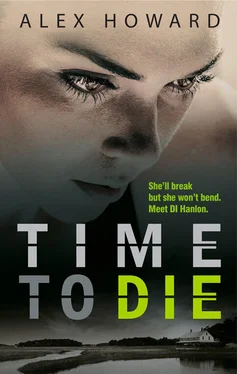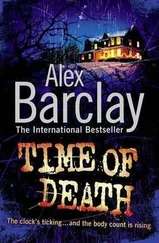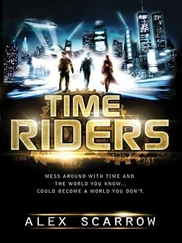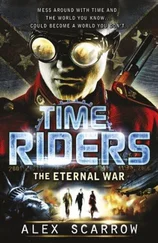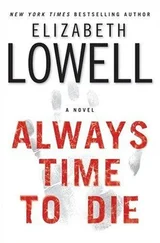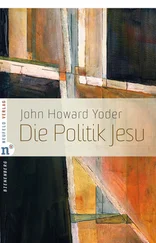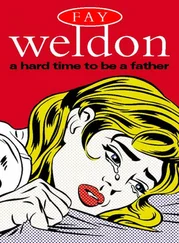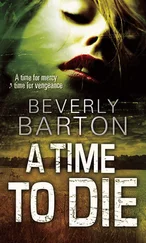Alex Howard - Time to Die
Здесь есть возможность читать онлайн «Alex Howard - Time to Die» весь текст электронной книги совершенно бесплатно (целиком полную версию без сокращений). В некоторых случаях можно слушать аудио, скачать через торрент в формате fb2 и присутствует краткое содержание. Жанр: Триллер, на английском языке. Описание произведения, (предисловие) а так же отзывы посетителей доступны на портале библиотеки ЛибКат.
- Название:Time to Die
- Автор:
- Жанр:
- Год:неизвестен
- ISBN:нет данных
- Рейтинг книги:3 / 5. Голосов: 1
-
Избранное:Добавить в избранное
- Отзывы:
-
Ваша оценка:
- 60
- 1
- 2
- 3
- 4
- 5
Time to Die: краткое содержание, описание и аннотация
Предлагаем к чтению аннотацию, описание, краткое содержание или предисловие (зависит от того, что написал сам автор книги «Time to Die»). Если вы не нашли необходимую информацию о книге — напишите в комментариях, мы постараемся отыскать её.
Time to Die — читать онлайн бесплатно полную книгу (весь текст) целиком
Ниже представлен текст книги, разбитый по страницам. Система сохранения места последней прочитанной страницы, позволяет с удобством читать онлайн бесплатно книгу «Time to Die», без необходимости каждый раз заново искать на чём Вы остановились. Поставьте закладку, и сможете в любой момент перейти на страницу, на которой закончили чтение.
Интервал:
Закладка:
Enver began to see what Corrigan was getting at. Hanlon would be on the warpath. Corrigan continued, ‘For one thing, she has licences for two hunting rifles, a.22 and a.243, and three shotguns, one double barrel, one up and over and a pump action, and that’s just what she officially owns.’ He had stressed the word ‘officially’. Enver nodded. Hanlon could probably get anything she wanted in London, come to that. Enver could himself if he wanted to. He knew an underworld armourer, two in fact. You could even hire guns on a deposit basis for a couple of hundred quid plus deposit, non-returnable if the firearms were used.
Enver suddenly thought to himself, Corrigan thinks she might kill whoever did this. This is what it’s all about. ‘Why are you telling me this, sir?’ he asked. He wanted his suspicions confirmed.
Corrigan poured himself some more tea. The glass looked ridiculously fragile in his massive fingers. ‘Hanlon’s unstoppable, Sergeant, once she’s made up her mind. Why am I telling you this?’ He hesitated and rubbed the bald patch on his crown thoughtfully, ‘Because I like Hanlon a lot and I think you do too.’ He paused. ‘She can be her own worst enemy.’
‘What do you want me to do, sir?’ Enver was confused by Corrigan now. He had always thought that Corrigan would hang anyone out to dry who might get in his way. He hadn’t realized the extent to which the assistant commissioner was prepared to shield Hanlon.
‘I suppose I would like you to save her from herself, Sergeant. DI Hanlon has enemies in high places who would very much like to sack her. I want you to find out what she intends to do and stop her. That is what I want you to do, Sergeant. Needless to say, this conversation never took place.’
Sure, thought Enver. And stopping Hanlon doing anything is going to be really easy. ‘Thank you, sir,’ he said, purely to annoy Corrigan. ‘Then what are you doing here, sir? Officially, I mean. For when people ask me what the assistant commissioner wanted to talk to me about.’
The assistant commissioner didn’t miss a beat. ‘Building bridges, Sergeant, with the London Anglo-Turkish community. My secretary has arranged an interview with Olay Gazetesi and Londra Gazete for later.’
Enver nodded admiringly. You’re slick, he thought. They were the two Turkish-language newspapers in London. The AC had been in touch with them both. Corrigan had a rare talent for PR. Nothing was wasted.
‘I’m looking forward to meeting your uncle, the imam. We’re going to have our photos taken. I gather he’s highly respected,’ he said. ‘Meanwhile, here is what you’ll do about Hanlon.’
25
At 7 p.m. that evening, Enver was standing under the large Victorian railway viaduct in Bermondsey, a stone’s throw from the Shard. It was still light, but the sky was darkening and the narrow streets around here never really seemed to get much sun. He looked around. It was a strange juxtaposition, the gleaming, futurist construction rising skywards like something out of a sci-fi film, like Metropolis , and the gloomy, red-brick Victorian train viaduct. The enormously tall building looked deceptively short to Enver. This was, he thought, the tallest building in Europe but it certainly didn’t seem that way. It was hard to impress Enver.
Enver was a North Londoner. South London, the other side of the river, was alien territory. To want to live in South London seemed almost perverse. The very thought almost made him feel ill. To cross the Thames was to cross into another country. London was two distinct nations, but Schengen-like; you didn’t need a passport to travel between them.
Bermondsey, Enver decided from a short walk around it, was a schizophrenic part of London. It didn’t know what it wanted to be. It was like Barbara Windsor married to Damien Hirst. Bermondsey has a private art gallery, the White Cube, which is huge, both in reputation and size. Internationally famous artists like Gilbert and George, Anselm Kiefer, Tracey Emin and Antony Gormley show there. Following the art gallery, he guessed, like the Cantona seagulls around a trawler, or asteroids pulled in by the gravitational tug of a giant-like Saturn, came the hipsters, the fashionistas and the art-school students and the media types, and what was once a solid working-class environment had now become an odd mix of contemporary chic flats and Boho apartments in converted warehouses. Enver grimly noted sandblasted walls, lots of glass, nautical-style architectural flourishes, tiny balconies that mirrored ships’ decks, with hawsers as guard rails and panoramas of shiny stainless steel, at exorbitant prices. There were mini-piazzas with fake cobbles. He loathed these chichi details with a passion that surprised him. These bijou flatlets stood cheek by jowl with traditional council estates which Enver personally wouldn’t risk walking around without a local in tow. It’s Hoxton all over again, he thought.
Enver had been out in his youth with several girls from art-school-style backgrounds. He’d been a big hit with the students of Goldsmiths and St Martins. He was local colour. He was exotic. Art school was a country he’d visited often. He wouldn’t like to live there but he enjoyed staring at the colourful natives. A bit like Turkey. He’d lost count of parties where he’d been paraded as a kind of odd freak for the intellectuals to look at. ‘You must meet my boyfriend, Enver. He’s…’ here the categories had changed over the years but the point, he’s not one of us, had been the same… ‘half-Turkish/a boxer/a policeman/his uncle’s an imam, how weird/his dad’s got a kebab house in Southgate, but not in an ironic way, it actually is a kebab house!’ Perhaps that’s what I share with Hanlon, he thought, stroking his drooping moustache, we don’t fit in, and we don’t really want to.
Even the defiantly grim railway arches had been colonized by the arty interlopers. Underneath the red-brick, shallow arches of the railway bridge were small businesses and pop-up restaurants, the odd night club and, more prosaically, the occasional road that ran underneath from one side of the construction to the other. Enver was on the pavement of one of these thoroughfares, the vaulted roof of the bridge overhead, the noise of the traffic compressed to a loud, echoing roar by the constrained acoustics of the confined space. Despite the recent dry weather and the unusual heat, it was cold and damp in this shadowy place that never saw the light of day. It smelt of damp and piss and poverty. It was resisting gentrification. Enver patted the clammy, sweating brickwork. Good luck, he thought. Enjoy it before you get claimed as a ‘found’ artwork, dismantled and put in a gallery.
Some elements of the old Bermondsey remained, however. Halfway along the tunnel was a doorway with a fading sign for ‘Bob’s Gym, Boxer’s Welcome’. Enver knew there was something wrong with the punctuation, with the apostrophe, but wasn’t quite sure what it was. Punctuation wasn’t his strong point. What it did send out was the message that Bob was untroubled by such things. The sign didn’t mention popular quasi-boxing sports such as boxercise or, Enver’s personal bête noir, white-collar boxing, where office workers pretend they’re boxers. You’re such a snob, he told himself. You’re not a boxer any more. Look at you. A city accountant could probably take you, you fat lump. His obese stomach mocked his former slimline self. You wouldn’t need to hit me in a ring these days, just run around, I’d collapse trying to catch you.
He opened the door and it was like going back in time. His own boxing gym, the one that he’d fought out of in North London, was relatively smart. ‘Gentleman Dave’ Jones, who ran it, a sixty-year-old former middleweight like Enver, but, unlike Enver, annoyingly trim, embraced modernity and was also a cleanliness fanatic. He was an ex-army champion and the army had left its mark not just on his face, his posture and his language, but on his attitude. Everything that could gleam, did gleam. There was usually a smell of paint overlying the scent of sweat and effort that comes with a gym. And if it didn’t smell of paint, it smelt of polish. Not here. Not at Bob’s. Mildew, body odour, grim effort and violence, that’s what was in the air. Enver snuffled it with greedy pleasure. He realized with a pang how he had missed that smell.
Читать дальшеИнтервал:
Закладка:
Похожие книги на «Time to Die»
Представляем Вашему вниманию похожие книги на «Time to Die» списком для выбора. Мы отобрали схожую по названию и смыслу литературу в надежде предоставить читателям больше вариантов отыскать новые, интересные, ещё непрочитанные произведения.
Обсуждение, отзывы о книге «Time to Die» и просто собственные мнения читателей. Оставьте ваши комментарии, напишите, что Вы думаете о произведении, его смысле или главных героях. Укажите что конкретно понравилось, а что нет, и почему Вы так считаете.
